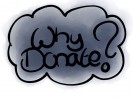CN: anti-Traveller racism, discussion of processes of dehumanisation and marginalisation of the Other.
You know Lewis’s Law? It’s the one that says that comments on any article about feminism justify feminism. I was reminded of it- in a very different context, of course- when I woke up this morning to the following set of Tweets responding to my last post.
The tl;dr for my last post, to get you up to date:
Irish settled people’s bigotry toward our Irish Travellers is all-pervasive, considered socially acceptable, and utterly vile. We act as though treating Travellers as if they were subhuman is perfectly okay. In a housefire last week, ten people from two Traveller families died in a housefire, and their neighbours’ homes were destroyed too. The next day, relatives of the deceased were refused entry to a bar where they went to get lunch. And residents around the area picked for emergency accommodation for the survivors have been blockading the site to prevent their temporary homes being built.
Back to those tweets.
This set of replies is a perfect example of Lewis’s Law. It’s long, but I think that it’s useful to read through it because what we’ve got here is textbook. And by ‘textbook’, I mean that if I were teaching this stuff I’d have already set my students analysing these. This is how prejudice and marginalisation are normalised. This is how we do it. Take a look at the entire sequence:
@flyingteacosy @BolgerAnnmarie I lodge in a Midlands town where I’ve seen travellers arrested out of pubs during the day & they bounce 1/2
— Paul Butler (@PaulButler01) October 14, 2015
@flyingteacosy @BolgerAnnmarie doors off pedestrians on at least 3 occasions in the last 2 days where they alight from 151/2 vehicles. No — Paul Butler (@PaulButler01) October 14, 2015
@flyingteacosy @BolgerAnnmarie consideration or respect for any other beings. You get what you give in this life. — Paul Butler (@PaulButler01) October 14, 2015
@PaulButler01 @flyingteacosy fair enough but there is a % of bad apples in every culture,reg ppl carry on like that too eg.in Temple Bar — Annmarie Bolger (@BolgerAnnmarie) October 14, 2015
@BolgerAnnmarie @flyingteacosy True bt the disrespect twrds non-travellers is drummed in from an early age. Seen it in cinemas streets, bars
— Paul Butler (@PaulButler01) October 14, 2015
@BolgerAnnmarie @flyingteacosy Worked with a traveller cleaner girl for 2 days in a previous job & she was bringing a case against them — Paul Butler (@PaulButler01) October 14, 2015
@BolgerAnnmarie @flyingteacosy because she wasn’t getting enough hours. Know a solicitor who said one of his clients had a 14 year old boy — Paul Butler (@PaulButler01) October 14, 2015
@BolgerAnnmarie @flyingteacosy come to the courthouse with €5000 in bail money. There is a victim culture which needs to be stopped from — Paul Butler (@PaulButler01) October 14, 2015
@BolgerAnnmarie @flyingteacosy within the community & not by guilty parties outside of their culture. Enough of the pity party. Carrickmines
— Paul Butler (@PaulButler01) October 14, 2015
@BolgerAnnmarie @flyingteacosy was tragic but NOT the subsequent bar related incident. — Paul Butler (@PaulButler01) October 14, 2015
@BolgerAnnmarie @flyingteacosy My dad used to take us hunting with traveller kids when we were young. Sounder people you could not get. — Paul Butler (@PaulButler01) October 14, 2015
@BolgerAnnmarie @flyingteacosy Last one Annemarie & won’t bore you anymore. Was living in Youghal when 3 traveller men pulled up in a big — Paul Butler (@PaulButler01) October 14, 2015
@BolgerAnnmarie @flyingteacosy jeep. Asked for directions so I hopped in and we drove to the house they were interested in buying. When we
— Paul Butler (@PaulButler01) October 14, 2015
@BolgerAnnmarie @flyingteacosy got out of the jeep an angry local without hesitation threatened us with the guards just for looking at an
— Paul Butler (@PaulButler01) October 14, 2015
@BolgerAnnmarie@flyingteacosy empty ‘For Sale’ house. That does not fly either. Hve seen it both ways No right or wrong but respect the key — Paul Butler (@PaulButler01) October 14, 2015
Let’s take a look at what’s going on here- on how Paul is excusing and perpetuating his pre-existing prejudices about Travellers. Let’s get into some bullet points. Here’s what I’ve got:
- Confirmation bias: putting greater weight on evidence that supports your existing beliefs, and ignoring or dismissing evidence that leads to something else. He accuses Travellers of having zero respect for settled people, and gives anecdotal evidence of this.
- Stereotyping of the Other: the Other are not individuals. They are part of a group, all of whom are tainted by the acts committed by others. When settled people are seen to act disrespectfully towards Travellers, he frames this as an individual action.
- Simultaneously taking no responsibility for the actions of others within one’s own ingroup. Travellers are All The Same and can be generalised, it seems. But why would anyone expect settled people to be?
- Zero acknowledgement of power structures. No reason is given for why Travellers mightn’t have any respect for settled people, or for why settled people might treat Travellers badly. Or for the fact that Travellers are a tiny minority in Irish society- only about 20,000 people in a country of 4 million- who hold practically no institutional power.
- Zero acknowledgement of context. He says that Carrickmines was tragic, but brushes off the bar incident as unrelated. The bar incident happened the day after the Carrickmines tragedy, to relatives of the people who died. The incident was well known- it was all over every news website, paper, radio station, and TV news bulletin in the country. The identity of the families who died was no secret.
- Token acknowledgement that Travellers are, in fact, a diverse group of people who are not all the same. Followed by zero acknowledgement that this mean that we shouldn’t actually kick people out of pubs and picket the places that they’ll live simply because they’re Travellers.
- Bonus: referring to settled people as “regular people”. With the implication that Travellers are anything but regular.
- Extra bonus: “you get what you give in this life” applies to a marginalised group but not the dominant group. Travellers as a whole have to face the consequences of the (reported) actions of others. Settled people face no such thing.
- Extra-extra bonus: Some Of My Best Friends Are Travellers.
That’s all I’ve been able to pick out of it. Got any more? I have no idea what it’s like to face the kind of hatred and marginalisation that Irish Travellers deal with every day. I do know one thing: I’m sure that the things that shock me are just another day if you’re a Traveller. Because although I’m not part of that group, I do know what it is like to be part of a marginalised group. The details are always different, but I sure do know what it’s like to have every one of those tactics used against people like me. And I also know what it’s like to listen, bemused, as relatively privileged friends of mine are shocked to really discover the kinds of things I’m used to experiencing. Let me make something clear: settled people have the power here. We constitute the vast majority of people in Ireland. Settled people get to determine the very structures of our society. And we use that power to shove Travellers to the margins of Irish society. Settled people are the ones with the responsibility here. We have almost all of the power. We’re the ones who need to get our act together. And we need to start by showing up speech like Paul Butler’s for what it is: nothing more than excusing exclusion.
Even bloggers have to pay the bills! Monthly subscriptions- no matter how small- help give me the security to devote time to this place and keep a roof over my head. If you like what you read, please do help out:





The “you get what you give” attitude, to an extent, also justified power groups having power. If they’re doing so well, they must deserve it. Otherwise they might have to feel guilty for doing well.
I was travelling in Ireland once with my girfriend of the time. We stopped at a pub and had some lunch and a cider and a hard conversation. We were both crying at the time, because it was a hard conversation. People looked out way, with compassion, and let us carry on. Funny to think there’s so much judgement. It makes me wonder why we don’t simply run through areas with a blood-dripping sword of pain and vengeance.Nice being nice, eh?
(says the fellow of largely Danish/Viking ancestry)
That’s the thing though, isn’t it? The people saying these things are probably kind and compassionate in other areas of their lives. That’s what years of prejudice will do to people. Nobody thinks that they’re being unreasonable.
Bonus: referring to settled people as “regular people”.
I have to note, though, that it was Annmarie Bolger who referred to settled people as regular. You placed this under a list of what Paul is doing, but Paul didn’t do that, so that is an inaccurate accusation.
I totally agree, though, that is a tactic for “excusing and perpetuating pre-existing prejudices.”
Good point! I should have made a note of that.
Are there bonus points for “Victim mentality!”?
i think that might be the worst. marginalized group faces discrimination constantly = fine. marginalized group addresses the discrimination = VICTIM MENTALITY.